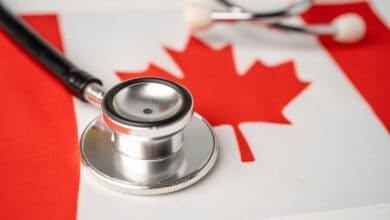Getting into medical school involves 2 fundamental steps:
Step 1 is knowing the required courses, extracurriculars and tests that should ideally be completed by the time you apply to medical school. Step 2 is optimizing each of these areas.
By reading this blog, you’ll be saving at least a couple of hours combing the internet for answers, and you can be sure this information is highly credible, unlike answers you may find on forums and blogs written by unqualified authors.
Now, let’s tackle Step 1 first.
Know the Requirements to Get Into Medical School
The required pre-med courses are as follows:
- Biology – 2 semesters with lab
- General chemistry – 2 semesters with lab
- Organic chemistry – 2 semesters with lab
- Physics – 2 semesters with lab
- Biochemistry – 1 semester
- English (writing intensive) – 2 semesters
- Math – 2 semesters
Pro-tip: Statistics and psychology, while not required, are strongly recommended.
One issue closely related to pre-med courses is majors. College students often ask me if they should major in something like biology or chemistry in order to increase their chances of getting into medical school. I always tell them that it doesn’t matter what they major in, and it doesn’t have to be science-related. The main criterion for choosing a major is that you are interested in it.
The required extracurriculars are as follows:
Complete Physician Shadowing Hours
We recommend shadowing at least 3 physicians in 3 different fields to demonstrate you have taken the time to understand different specialties.
Get Clinical Experience
Unlike shadowing (where you often just watch a physician), clinical experience means having direct interactions with patients. This could mean talking to them about why they are seeing the doctor today or measuring their vitals.
We recommend scribing, hospice volunteering or being an EMT because you get more patient interaction as well as a higher level of responsibility compared to volunteering in a hospital, which most applicants do.
Complete Some Research
Even if you are not interested in doing any research later on in your career, medical schools still expect to see some research experience.
Participate in Community Service
Community service is about helping those in need without getting anything in return. Such service does not have to be healthcare related; therefore, volunteering for Habitat for Humanity or at a food bank is perfectly acceptable.
Take the MCAT
As you probably already know, you must take the MCAT (Medical College Admission Test) in order to get into medical school. The MCAT is a 7.5-hour exam and there are four sections: Biological and Biochemical Foundations of Living Systems; Chemical and Physical Foundations of Biological Systems; Psychological, Social, and Biological Foundations of Behavior; and Critical Analysis and Reasoning Skills.
We recommend that you take it no later than May/early June of the year you are applying. However, if you can take it earlier than May, that is strongly recommended in case you want to retake it.
Read Next: How to Prepare for your Multiple Mini Interview
Optimize Your Application
While ticking off the boxes in terms of required courses, extracurriculars and tests is important, it’s not only about doing them. It’s also about doing them well.
Therefore, Step 2 for getting into medical school is optimizing each of these areas. At a general level, this means getting the highest grades possible in all your courses and getting the highest score possible on your MCAT. While the nuts and bolts of optimizing your academics and the MCAT are beyond scope of this article, here are 4 surefire ways to optimize your extracurriculars:
- Long-term commitment – Try to do every extracurricular activity for at least 2 to 3 years if possible.
- Evolution and growth – Long-term commitment in turn better enables you to develop new knowledge, skills, approaches to thinking and responsibilities.
- Leadership – Given that physicians often lead teams and projects, demonstrating leadership is critical.
- Results – Applicants often forget about results. It’s not only about doing something, but also about achieving a result that you can quantify or qualify.
Follow this advice and you’ll be on your way to getting into medical school!



